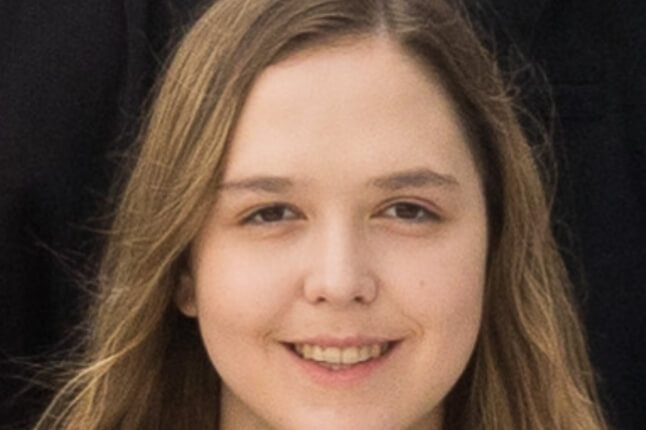News
A symposium on genetic information in the digital age will feature two interactive discussions among experts in medicine, genetics, law, and public policy. (Image courtesy of Flickr user Jorge Lucero.)
Cambridge, Mass. – March 30, 2011 – In conjunction with regional meetings of the National Academy of Engineering (NAE), the Institute of Medicine (IOM), and with the American Academy of Arts and Sciences, the Dean of the Harvard School of Engineering and Applied Sciences (SEAS) will host a symposium on Privacy, Autonomy, and Personal Genetic Information on Thursday, April 14, from 2:30 to 5:00 p.m.
Held at the American Academy in Cambridge, Mass., the meeting is open to members of the NAE, IOM, the American Academy, and invited guests and the media. The general public will be able to view a free video of the symposium online following the event.
“If we are not careful, our DNA may well become our destiny,” says SEAS Dean Cherry A. Murray. “Since anyone’s personal genome can now easily be digitized and distributed, we must confront the challenging questions about privacy, ownership, and the use of such information. The once fictional ‘near-future’ scenarios portrayed in movies like Gattaca are happening right now.”
The symposium features two interactive discussions among experts in medicine, genetics, law, and public policy. The first panel, moderated by Jeffrey S. Flier, Dean of Harvard Medical School, will explore how “crowdsourcing” genetic research could spur advances in medicine and technology; it will also elucidate issues that arise when researchers, drug companies, and government agencies attempt to use genomic data for financial and intellectual gain.
The second panel, moderated by Jonathan Zittrain, a faculty member with appointments at Harvard Law School, the Harvard Kennedy School of Government, and SEAS, will ask what role doctors should play in providing and interpreting genetic data, and how that might affect a citizen’s right to access his or her own personal information unhindered by authorities.
Featured speakers include genomics pioneer George Church, Professor of Genetics at Harvard Medical School and Director of the Harvard Lipper Center for Computational Genetics; attorney Dan Vorhaus, who specializes in genomics and personalized medicine; and Michele Caggana, who directs the Newborn Screening Program and is the Deputy Director for the Division of Genetics for the New York State Department of Health.
“Personalized medicine and direct-to-consumer genetic testing are raising thorny questions of how our most sensitive personal information should be handled in a networked world, and how much information is too much as trading genomic data becomes as easy as ‘friending’ someone on a social network,” says Zittrain, who is also a member of the programming committee for the event.
IOM President Harvey V. Fineberg, NAE President Charles M. Vest, and Harvard’s Cherry A. Murray will also participate in a panel discussion sponsored by the American Academy, Making America More Competitive, Innovative, and Healthy, following the symposium and beginning at 6:00 p.m.
- Members of the media who wish to attend the symposium should RSVP to Michael Patrick Rutter at mrutter@seas.harvard.edu or (617) 496-3815.
- Members of the media who wish to attend the panel discussion, Making America More Competitive, Innovative, and Healthy, should contact Paul Karoff at pkaroff@amacad.org or (617) 576-5043.
###
American Academy of Arts and Sciences
Founded in 1780, the American Academy of Arts and Sciences is an independent policy research center that conducts multidisciplinary studies of complex and emerging problems. Current Academy research focuses on science and technology policy; global security; social policy; the humanities and culture; and education. With headquarters in Cambridge, Mass., the Academy’s work is advanced by its 4,300 elected members, who are leaders in the academic disciplines, the arts, business, and public affairs from around the world. Learn more at: http://www.amacad.org/
Harvard School of Engineering and Applied Sciences (SEAS)
The Harvard School of Engineering and Applied Science serves as the connector and integrator of Harvard’s teaching and research efforts in engineering, applied sciences, and technology. Learn more at: http://www.seas.harvard.edu
Institute of Medicine (IOM)
The Institute of Medicine (IOM) is an independent, nonprofit organization that works outside of government to provide unbiased and authoritative advice to decision makers and the public. Established in 1970, the IOM is the health arm of the National Academy of Sciences, which was chartered under President Abraham Lincoln in 1863. Nearly 150 years later, the National Academy of Sciences has expanded into what is collectively known as the National Academies, which comprises the National Academy of Sciences, the National Academy of Engineering, the National Research Council, and the IOM. Learn more at: http://www.iom.edu/
National Academy of Engineering (NAE)
Founded in 1964, the National Academy of Engineering (NAE) provides engineering leadership in service to the nation. The NAE operates under the same congressional act of incorporation that established the National Academy of Sciences, signed in 1863 by President Lincoln. Under this charter the NAE is directed "whenever called upon by any department or agency of the government, to investigate, examine, experiment, and report upon any subject of science or art." Learn more at: http://www.nae.edu/
Topics: Ethics, Computer Science, Bioengineering
Cutting-edge science delivered direct to your inbox.
Join the Harvard SEAS mailing list.
Scientist Profiles
Jonathan Zittrain
George Bemis Professor of Law




